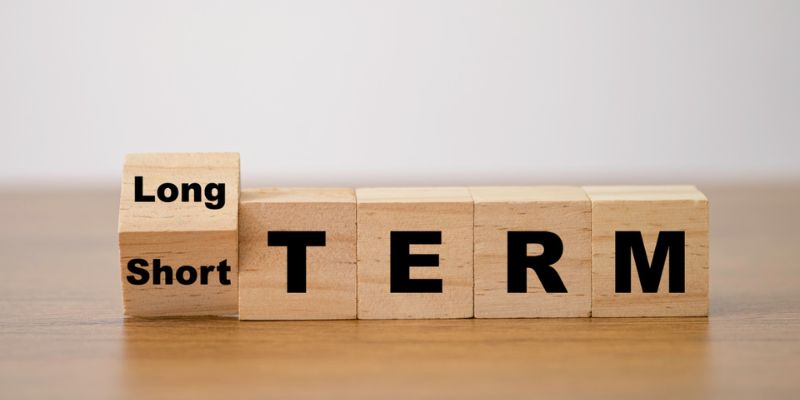Are you looking to make a good return on your investments in the short term? Investing can be intimidating but it doesn't have to be. In this blog post, we'll go over some of the best short-term investments that won't require you to tie up your money for years.
We'll discuss what makes these investments unique and how they can help grow your wealth with minimal risk and effort. Read on for more!
What Is a Short-Term Investment

A short-term investment is a financial instrument that can be held for up to three years. This type of investment is designed to provide investors with liquidity and usually pays out as interest or dividends.
Short-Term Investments: Safe But Lower Yield
Short-term investments are generally safe as they are not subject to the same market fluctuations as other investments. This makes them ideal for conservative investors who want to minimize their risk.
However these investments typically have lower yields than long-term investments due to the relatively short period over which gains may be realized. Such investments include certificates of deposit (CDs) , money market accounts and certain bonds. These investments typically come with set returns and are backed by an institution to protect the investor's principal amount.
However investors should be aware that short-term investments tend to provide lower yields than long-term investments, making them less attractive for those looking to maximize their returns in short-term investment opportunities.
Top Short-Term Investments

High-yield savings accounts
High-yield savings accounts are a popular option for those looking to make short-term investments with minimal risk. These accounts offer higher interest rates than traditional savings accounts allowing investors to earn more money on their investments over time.
High-yield savings accounts typically come with low minimum balance requirements and can often be opened online in just a few minutes.
High-yield savings accounts are FDIC-insured, making them a safe option for investors who want to secure their principal amount. Additionally these accounts typically have no minimum investment requirements, and investors can withdraw their money without penalty. This makes high-yield savings accounts attractive for those not wanting to commit to long-term investments.
However, high-yield savings accounts often come with limitations on the amount of money that can be deposited into them, and there may be limits to how many times withdrawals can be made in a given month.
Additionally, these accounts tend to have lower yields than other investment options, making them less attractive for those who are looking to maximize their returns in the short term.
Those looking for a safe, low-risk option to grow their money over time may find that high-yield savings accounts are ideal.
Money market accounts
Money market accounts are a type of short-term investment that offer higher returns than traditional savings accounts. These accounts allow investors to earn more money on their investments while maintaining the safety and security of savings accounts.
Money market accounts come with FDIC insurance up to $250,000, allowing investors to secure their principal amount and rest assured that their money is safe. Additionally, these accounts have no minimum balance requirements and do not require investors to commit to long-term investments.
The yield rate on money market accounts can vary depending on the institution. Generally, they offer a higher return than traditional savings accounts but lower returns than other short-term investments such as CDs or bonds.
Money market accounts are also typically more liquid than other short-term investments, meaning that investors can access their funds at any time without penalty. This makes them ideal for those looking to make short-term investments or needing immediate access to their money.
However, it is important to note that Money Market Accounts have certain restrictions, such as limited withdrawals and deposits. Additionally, they may not be the best choice for investors looking to maximize their returns in the short term, as these investments have relatively low yields compared to other investment options.
Certificates of deposit (CDs)
Certificates of Deposit (CDs) are a popular short-term investment option for those looking to make a good return on their investments without tying up their money for years. Banks issue CDs and typically have predetermined terms ranging from 3 months to 5 years.
The major advantage of investing in CDs is that they offer higher interest rates than traditional savings accounts and come with FDIC insurance of up to $250,000. This makes them a great option for conservative investors looking to minimize their risk while still earning a decent rate of return.
CDs have low minimum investment requirements and can often be opened quickly online or at your local bank branch in just a few minutes. However, it is important to note that these investments are not as liquid as other short-term investments, meaning that investors cannot withdraw their money before the CD's term is up without incurring a penalty.
CDs are an excellent option for those looking to make a good return on their money in the short term and who want the security of FDIC insurance. They offer higher returns than traditional savings accounts while still providing investors with the liquidity of a shorter-term investment. However, they may be better for those looking to maximize returns and needing immediate funds access.
Government-backed assets: Treasurys, bonds, and bond funds
Government-backed assets, such as Treasurys, bonds, and bond funds, are popular short-term investments for those looking to generate stable returns with minimal risk. The US government or other organizations guarantee these assets and offer investors a safe and secure way to grow their money.
Treasury bills (T-bills) are government securities with maturities of one year or less and are issued at a discount to face value. They offer higher yields than savings accounts but carry little risk since the US government backs them.
On the other hand, bonds are longer-term investments that provide investors with steady returns. Companies and governments issue bonds with maturities of up to 30 years. Bonds typically yield higher than T-bills but carry more risk, as the government does not back them.
Bond funds are another short-term investment option that provides exposure to various bonds with varying maturities and yields without purchasing individual bonds. Bond funds are attractive for those looking for a diversified portfolio with minimal effort.
Cash management account
Cash management accounts are a type of financial account that combines the benefits of traditional banking products like checking and savings with additional investment features. These accounts offer convenience, flexibility, and higher returns than traditional bank accounts.
Cash management accounts offer customers access to their funds through online banking, mobile apps, debit cards, and checks. Each transaction is automatically tracked and managed in one place, giving customers a complete picture of their finances.
In addition to traditional banking features, cash management accounts provide access to investment services such as mutual funds and ETFs. This allows customers to invest their money for potentially higher returns while having instant access to their funds when needed.
FAQs
What is the safest short-term investment?
The safest short-term investment is a high-yield savings account, which offers FDIC insurance of up to $250,000 and no minimum balance requirements. Money market accounts are also a safe option with higher returns than traditional savings accounts.
What investments have the highest returns?
Investments such as stocks, mutual funds, and ETFs typically offer the highest returns in the long term.
Are cash management accounts worth it?
Cash management accounts are an excellent option for those looking for convenience, flexibility, and higher returns than traditional banking products. They offer customers access to their funds through various methods and the ability to invest in mutual funds and ETFs without opening additional accounts.
Conclusion
Individuals must know the best short-term investments to maximize their savings and benefit from higher yields. High-yield savings accounts, money market accounts, government-backed assets such as Treasurys and bonds, cash management accounts, and CDs are all excellent choices that weather market volatility. Ultimately, the decision boils down to finding an investment with a yield that meets your needs while allowing you to meet your financial goals within the stated time frame.

Best Growth ETFs

Auto Insurance Advice From a Consumer Advocate

How Does Tax-Exempt Commercial Paper Work?

Payroll Tax: What It Is, How to Calculate It

What is a W-9 Form and Why You Need To Fill It Out

Robinhood Business Model- How do they make money?

Adjustable-Rate Mortgage (ARM) – What Is It and How To Apply

Single Member LLCs: A Complete Guide

Credit Card Default: How It Happens, What To Do About It

What can be a Potential Merger Impact on Shareholders?

What is Statement of Financial Accounting Concepts (SFAC)?
